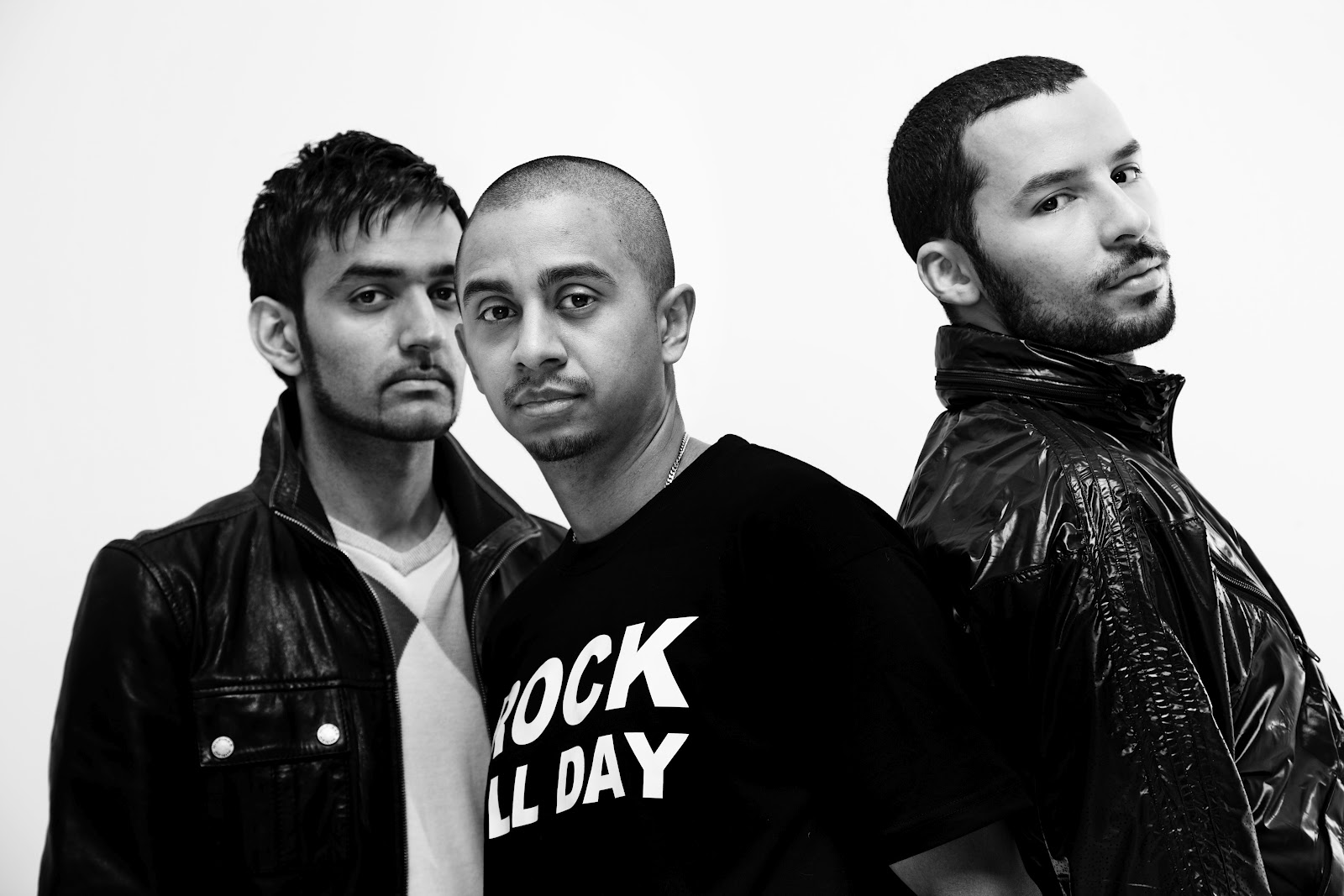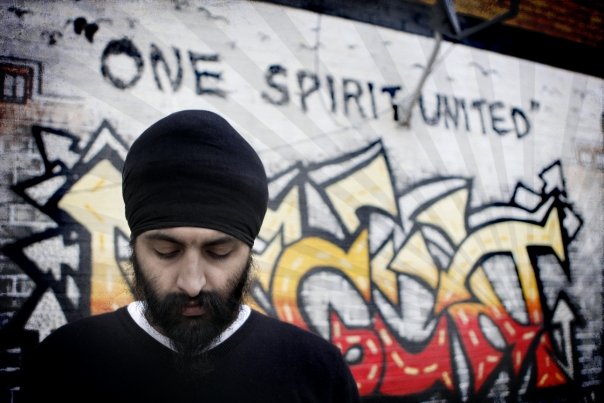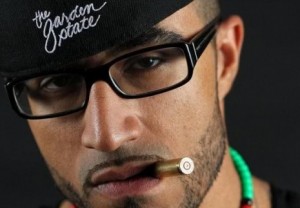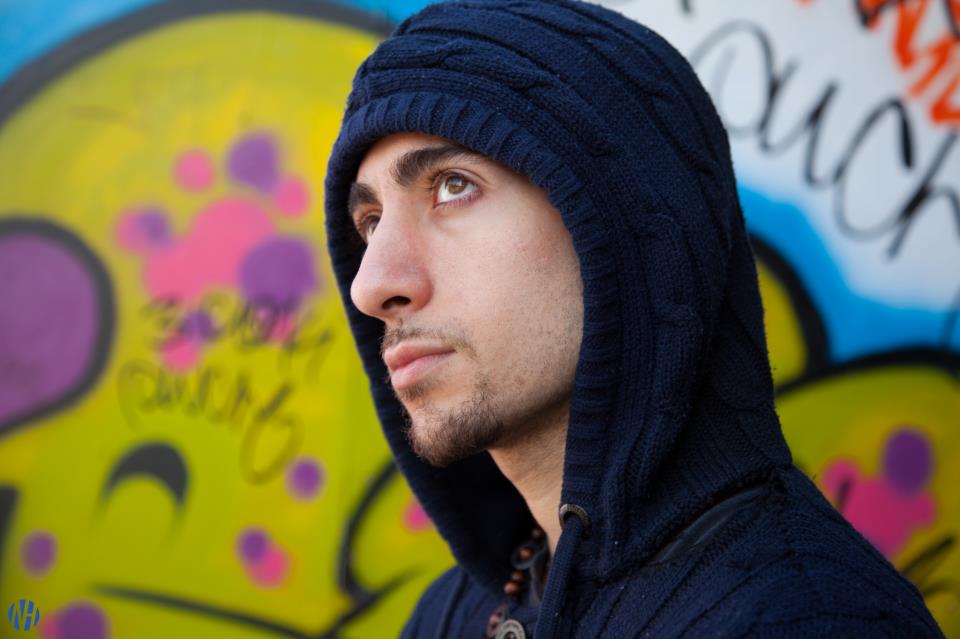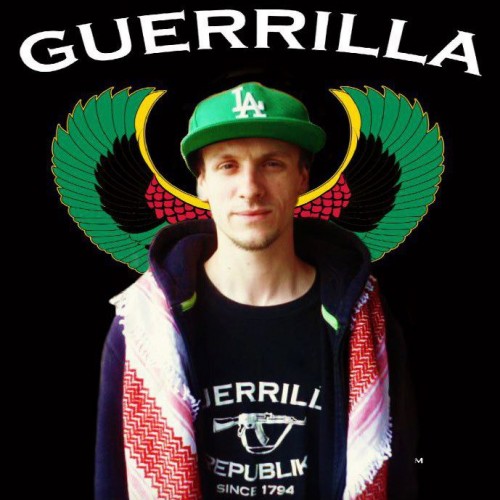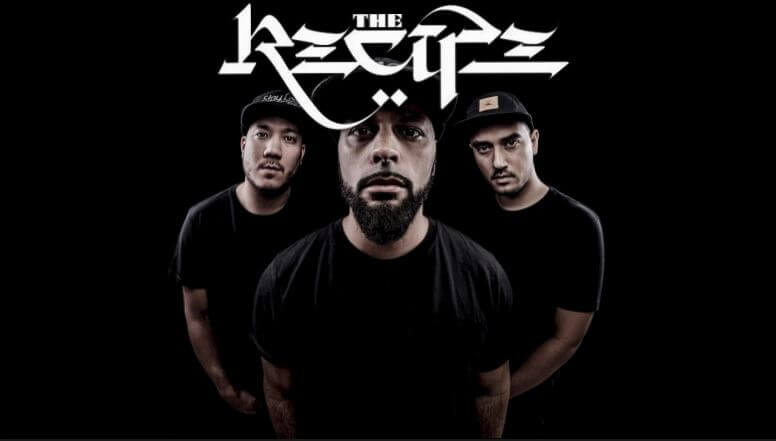
Tell us about how The Recipe started – who is a part of the collective and what do you bring to it?
The Recipe began in 2008 as a compilation to showcase the city’s emerging hip-hop scene. The aim was to bring together all the artists in the UAE, give them production, a studio and a final product. The only condition was that in order to feature on the album, you had to collaborate with another artist on the project. There were 14 of us in total and when we dropped the project, people started calling us a group and started booking us as The Recipe. Today the group consists of 3 rappers Swerte, Kaz Money & P.Storm.
Whilst you are based in Dubai, where are you from originally and how has this influenced the music you make?
We’re all pretty mixed, Swerte is half Swiss half Indonesian, Kaz is Italian, Syrian, Eritrean and Armenian and P is half British, half Chinese. Kaz was born and raised in Abu Dhabi, P came to Dubai at a very young age and Swerte came to Dubai around 12 years ago. Our music is influenced by the city and our cultural backgrounds. With our mixed backgrounds, we speak for a huge population of 3rd culture kids that don’t really have a home. We’re foreign where we’re at but also foreign where we’re from.
When we think Hip Hop, we think community, expression and being a voice for the voiceless. Many people don’t understand how Dubai which is seen as highly materialistic can produce an authentic Hip Hop culture. For those who feel this way… Tell us a bit about the scene there and what you have been building?
Like everything else if you follow mainstream media, you get mainstream material. The way Dubai is portrayed to the world in some places can be fairly accurate but we usually laugh at the shit we see out there. There’s a huge population of people that grew up here and have this city as home. It’s not all Bentley’s and popping bottles. We still have lives to live and mouths to feed. The scene here is young and with so many people in transit here it’s always hard to really lay the foundation and grow things organically but it’s starting to shift as so many of us have grown up here and call this home. We do have our extremes here, you got the super-rich, you got the super poor and everything else in between and everyone has a voice. I mean rich people have problems too right? Lol… 10 years ago we sort of paved the way and lay the foundation for other artist in the country, from radio, TV & print, to live shows and opening up for big international acts. We turned something that was extremely rare into something more common and acceptable.
You have opened for a number of acts, including UK Rapper Stormzy. What was this like?
Performing in general is dope. There’s no other feeling like it in the world. As a group we pride ourselves on a dope live act. Opening for big artist is always super dope because they bring a huge crowd that most upcoming artist could never really draw in. That night opening for Stormy was big, huge crowd, rowdy as hell. We’ve been blessed to be able to open for so many huge artists over the years. I mean you’re walking on the same stage as ‘gods’ you know you? We looking down on the floor during the performance and seeing Snoop dogs set list taped to a speaker. It’s crazy. Like being on stage before Mobb Deep then watching them perform while just a few hours ago we were in a studio session together banging out a record, it’s hard to explain that feeling and the different perspective you see it from.
There have been many debates about an artist’s social responsibility when it comes to influencing the youth. What are your thoughts on this?
Social responsibility is tricky especially in hiphop. Look at what we talk about in the music and then we give back to the community. Sometimes it can be contradictory. Like how does a kid process the information? In today’s social media age where every move is documented, should we be more responsible and careful with what we put out there? It’s tricky, we’re human, we aren’t perfect but not being perfect sells.
What is your “recipe” to the perfect Hip Hop track?
A dope beat that gives you that someone just farted face and some good bars. Hiphop is so diverse now, there’s a dope track for every kind of feeling and emotion out there. Whatever it is from that raw hiphop to ‘mumble’ rap there’s something dope out there for everyone. Whatever it is, as long as it comes from something real and not forced and fake.
Biggies Mac 11 features Mobb Deep, one of them members Prodigy we sadly lost last year. What was it like working with such legends?
How do you explain it? It’s hard. We grew up to these guys, we can recite their music backwards, we aspired to be them in the hip-hop world. Then the next second you’re in a lift with them talking shit and walking into a studio to make music together. It was the exact same feeling working with Talib Kweli, like yo we’re in the hood on a roof top with Talib Kweli shooting a music video. Sometimes it takes a minute to sink in, you get a bit star struck and it’s a bit surreal and you don’t want to say anything stupid and look like a fan and then boom it’s your turn on the mic. Time to work! But I think the most important takeaway from it was a validation that we stood next to legends and we held our own and they looked at us like ‘yo these boys are for real.’ What more could you ask for? You stand next to some of the greatest to ever do it and get that confirmation that everything you’ve been working towards, the countless hours you spent on your craft etc is paying off and you are legit.
Tell us a bit about your album ‘Funerals & Purgatory’? You have some big features on it… talk us through the process of creating it.
Funerals & Purgatory was our first ‘official’ album. Prior to that was just hundreds of tracks and mixtape, etc. We took a break for a few years and this was our first body of work together as a group that we put out officially on all platforms with vinyl in store as well. It’s 11 tracks, short and sweet and a re-introduction to the world. We spent years doing this and learning the business side of things and the right way to go about things and this product is a result of that. We linked up with an old homie who is now based in London Brvnjes and he produced the whole album. The album had a lot of meaning behind it. We killed ourselves to get to this point and we’re sitting in purgatory waiting to see if it will be heaven or hell? Purgatory was also our middle ground, a balance in sound. We grew up in the golden era of hip-hop but exist in today’s world where the sound is completely different, so we found this middle ground between both worlds and came up with an original sounding album that really fits who we are. That’s one of the dopest takeaways from this album. A lot of people have said it’s super dope because there isn’t anything else out there that sounds like this. We also managed to get Talib Kweli on the album which was huge as well as an old homie Spark Master Tape who’s been out there killing it.
What are your thoughts on the current state of Hip Hop? In an era of mumble rap, do you see this as a point of evolution or are these artists detrimental to the Hip Hop culture?
The current state of hip-hop is amazing. We’re on top of the world. Hip-Hop is no longer a side genre. It’s in everything. For every mumble rap artist out there, there’s a dope lyricist. There’s so much to choose from. If you’re complaining about mumble rap, why is it even showing up on your feed? Same goes if you’re complaining about people being to lyrical. No one will ever be happy. People complained about MC Hammer, people complained about 50 Cent, Lil Wayne, the list goes on. It’s funny though, because people who complained about 50 cent in 2003, now hear an old 50 record playing and be like ‘oh I miss the old days.’ The fact that hip-hop is involved in so many aspects of regular life no ways from the language to fashion, film etc. shows a huge evolution and everybody contributes to it.
What has The Recipe got in store?
We’re going to keep dropping singles until the end of the year and just keep stuff moving. A lot more music, a lot more visuals and some dope collaborations. The key for us is consistency, so we’re going to continue working and trying to build this name and fan base.
Social media links:
Everywhere as @therecipedxb
Swerte — @swertemc
Kaz Money — @Kazmoney
P.storm — @Pstormdubai
Hit us up!
Rishma Dhaliwal
Latest posts by Rishma Dhaliwal (see all)
- Remembering Blair Peach… — April 23, 2024
- NEW MUSIC | NAUGHTY BOY RETURNS WITH NEW SINGLE ‘BLOW TREES’ — April 19, 2024
- INTERVIEW | AFRICAN RAP SENSATION ZUBZ DISCUSSES LATEST SINGLE ‘POWER’ — April 19, 2024


